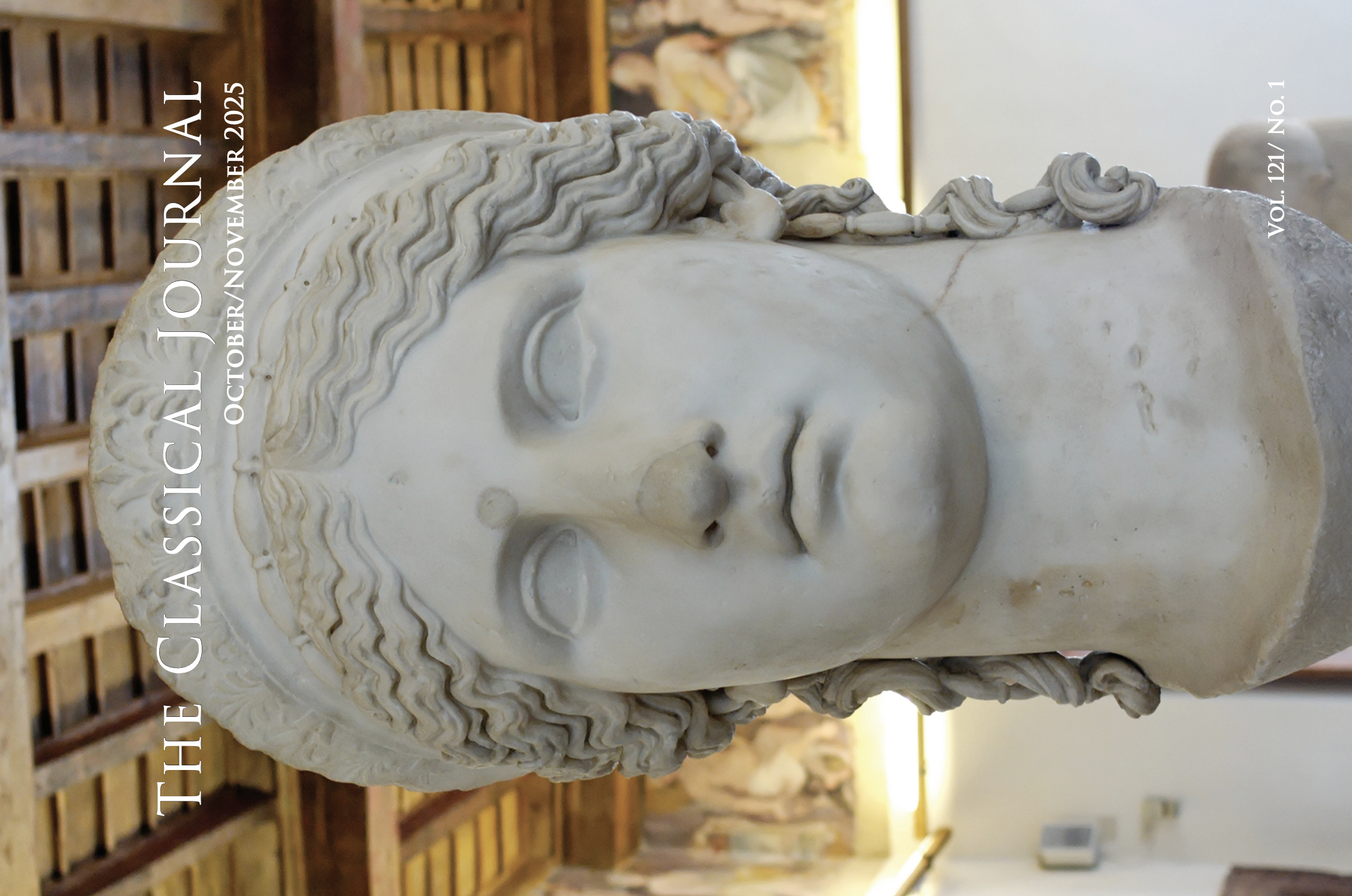The following articles are contained in CJ
119.4
Abstracts of Articles
Women and their Voices in Plautus' Rudens
The women who performed Plautus’ Rudens at Washington University in 1884, though they eliminated much misogyny from the play, left in a verse in which a character argues that good women should be silent. The women would have been aware that the line is deeply ironic, as the play offers one of Roman comedy’s most rewarding presentations of women’s voices, which are essential for the successful resolution of the plot. The verse reflects not a belief that women should be silent, but rather an awareness of the necessity for women to use their voices strategically in a patriarchal society.
Gender, Class, and Slavery in Plautus’ Rudens in 1884 St. Louis
The performance of Rudens in 1884 by the Ladies’ Literary Society of Washington University allows consideration of discourses surrounding the problems of slavery and eman-cipation in 1884 St. Louis. Comparing Plautus’ text (and representation of Roman slavery), the English translation prepared to accompany the performance, and published reviews of the performance reveals crucial redactions and alterations. Even as reviews reveal enthusiasm for the theatrical production, judged authentic for costuming and Latin pronunciation, the changes are shown to reproduce traditional American discourses about slavery and freedom, contemporary narratives about free Blacks, and local, campus discourses about the end of Reconstruction.
Ultra Veritatem Muliebris Vis: Women Classicists at and Beyond Washington University in the Dawning of Post-Bellum America
To contextualize the all-female American production of Plautus’ Rudens at Washington University in St. Louis in 1884 by the university’s Ladies’ Literary Society, my discussion considers the topic of Plautus’ comedy—freeborn Greeks threatened with enslavement—and the historical circumstances of its first staging in ca. 200 BCE; the historical circumstances surrounding the production, in a former slave state, less than two decades after the US Civil War; and, to illuminate the milieu in which the female students revised and performed Plautus’ text, the lives and professional contributions of five prominent American women classicists educated between 1865 and 1917.
Jesuit School Productions of Roman Comedy in the 19th-Century US
In this article I examine productions of Roman comedy in Latin at the end of the 19th century by several Jesuit schools in the United States. I show that they used these plays to demonstrate the high quality of Catholic education, to gain public support and private patronage, and to defend themselves within the hostile landscape of largely-Protestant U.S. education in this period. I also argue that these Jesuit schools saw Roman comedy as a way to link themselves not only to ancient culture, but also to traditions that once formed the core of the Society of Jesus’s educational model.
Slavery and Gender in the Performance of Rudens: From 1884-2021
Staging Roman comedy for a modern audience requires making decisions about how to portray uncomfortable power dynamics. In this article we discuss the casting and acting choices, and their implications for slavery and gender, in a Zoom performance of Plautus’ Rudens by the Classics Department at Washington University in St. Louis, based on the 1884 English translation by the Ladies’ Literary Society of Washington University. The 2021 performance’s individualized, fluid approach to portraying gender, alongside its engagement with modern discourse on power and status, highlights the importance of sociocultural context and performance context for understanding key features of the play.


